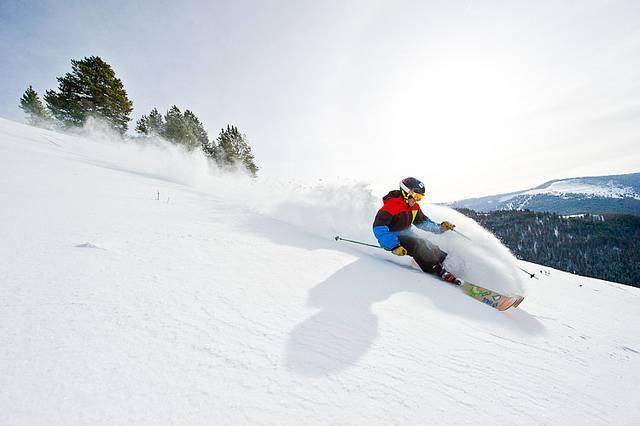
Vail Resorts, one of the largest mountain resort operators on earth, announced this week that it has committed to a "zero net operating footprint" by 2030. By the end of the next decade, the company says it will revamp its entire operations based on three pillars: zero net emissions, zero waste to landfill and a zero net operating impact on forests and local ecosystems.
This is quite a promise by Vail Resorts, which runs several iconic ski resorts across North America. Its properties read like a winter to-do list for the jet set. Starting with Vail, of course, the company also manages the Colorado ski resorts Breckenridge, Keystone and Beaver Creek. In Utah, Park City, adjacent to venues that hosted some 2002 Salt Lake Winter Olympics events, also is part of the company's portfolio. Surrounding Lake Tahoe, nestled between California and Oregon, is home to Vail Resorts' Heavenly, Northstar and Kirkwood.
All of these resorts boast timeless brands and enduring popularity. And therein lies the challenge for Vail Resorts: making all of these properties a more responsible tourism experience, while catering to a clientele who, as in the case of most people who travel, behave quite differently while they are on the road compared to how they conduct themselves at home. And those behaviors include "being sustainable." The company says it will provide guests with information and opportunities for them to decrease or offset their carbon footprint; but as the literature has proven over the years, such efforts at best show mixed results. After all, customers are often unaware of such programs - or they just choose to ignore them.
On that point, Vail Resorts cannot control their guests as they drive their gas-guzzling SUVs hauling heavy equipment to and from their mountain ski resorts (as well as their "urban resorts" in Wisconsin, Minnesota and Michigan). But the company can control the energy efficiency performance of their hotels, lodges and other venues. First, Vail Resorts will invest $25 million in a move to reduce the company's natural gas and electricity consumption by another 15 percent. So far, the companies' properties in total have reduced their energy use by 19 percent since 2008. Other projects include harnessing low-energy artificial snow equipment, implementing green building design and construction as well as investing in more efficient grooming practices and equipment.
Vail Resorts says it will purchase the equivalent of 100 percent renewables to offset its conventional power consumption. Other steps, of which Vail Resorts shared few details, include tree planting and working with suppliers to make sure their business practices become more sustainable.
More realistic is Vail Resorts' second pillar, its zero waste initiative. The company says its waste diversion rate currently stands at 40 percent; the goal is to boost that ratio to 50 percent by 2020 and then 100 percent a decade later. The steps are fairly standard: more recycling and composting; working with vendors to reduce packaging waste; and communicating with staff and guests about these programs in the first place. As Vail Resorts will find out, it is easy to put recycling bins in every guest and conference room. Nevertheless, ensuring that waste is taken care of properly always poses a big question mark. On this front, the company actually has a huge opportunity to develop new ideas or business practices that it could share with the hospitality industry so that it can become more responsible and less wasteful.
Finally, the company says it will strive to have zero operating impact on forests. Many ski resorts exist because more than a few trees here and there had to be felled. Organizers of next years Winter Olympics in South Korea, for example, have been harshly criticized for removing a 500-year-old "sacred forest" to pave the way for a ski slope. Vail Resorts infers that deforestation will no longer be the result of any current or future resorts. The company has also promised to restore an acre of forest for every acre of forest eliminated by its operations. Other somewhat nebulous promises include "minimizing or eliminating" any impact of future resort development, as well as continuing its commitment to working with NGOs in addition to funding them.
Image credit: Snow Snow/Flickr

Leon Kaye has written for 3p since 2010 and become executive editor in 2018. His previous work includes writing for the Guardian as well as other online and print publications. In addition, he's worked in sales executive roles within technology and financial research companies, as well as for a public relations firm, for which he consulted with one of the globe’s leading sustainability initiatives. Currently living in Central California, he’s traveled to 70-plus countries and has lived and worked in South Korea, the United Arab Emirates and Uruguay.
Leon’s an alum of Fresno State, the University of Maryland, Baltimore County and the University of Southern California's Marshall Business School. He enjoys traveling abroad as well as exploring California’s Central Coast and the Sierra Nevadas.














